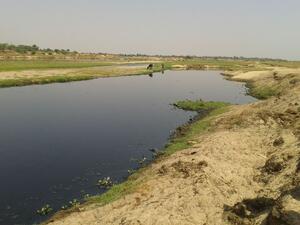India
The India study is conducted in the peri-urban areas of Ahmedabad in Gujarat (India). Gujarat is one of the most urbanized states of India. The urban population of Gujarat is 43 per cent in the year 2011 rising from 37 per cent in the year 2001. The growing urban population has increased the need for food and water supply, and led to an increase in sewage generation during the previous decade. The wastewater treatment facilities in Gujarat, as elsewhere in India, are highly insufficient and untreated sewage is rapidly polluting the water bodies, where it is being disposed. Given the scarce and poor quality water resources for the growing urban population and use of different types of water for irrigation viz. wastewater, river water, wells and freshwater, this study assesses the domestic water, sanitation and health from a systems perspective in the context of the hydrological cycle being impacted by different types of water use for agricultural activities at the locations. Behaviour and cultural aspects at domestic levels are also assessed. The study will eventually identify trade-offs, synergies and thresholds – i.e. the nexus among water quality and quantity, sanitation and hygiene and agriculture and their implication for investment priorities made specific in community business plans for a better health and nutrition outcome.
Partners: Public Health Foundation of India (PHFI) through Indian Institute of Public Health Gandhinagar (IIPHG)
Contact person: Ruchi Vangani, Timo Falkenberg




